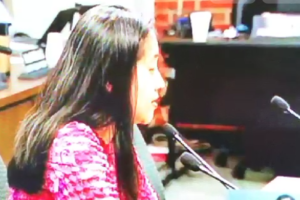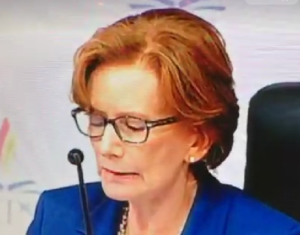 Dear JCPS,
Dear JCPS,
Hello, my name is MM. I am a freshman at Doss high school. In my civics class we are learning about integration and how it affects us as a person. So we were asked if we were for or against cross busing in Louisville, Kentucky and why we [felt that way].
I am for busing because I believe that we as a students should have the right to choose the school of our choice. By choosing the school that we wanted to go to it give us a chance to learn about the future goal that we have made for our self. It also gives the students opportunities to get along with students that are from different parts of the town or community. It can also give students opportunities to learn new skills from each other and about the places that they live in or what they do fun.
My second reason is that it give all the students a chance to go to schools in areas with more money. They can also meet students that are as skilled as them so they can give each other advice, support each other to do well in school and it will push them to work harder than before because they have the support of their friend.
My third reason is that it can raises test scores because me as a student try harder when I saw other students work hard. It also makes me keep on working and it can also help eliminate racism because without the busing we will have more students that are white in one high school and there will be more black students in a different school so if you are the only one white in that school it will make you feel like you don’t belong in that school because how you look.
To change this problem I would like to give you one way to make the busing better. My plan is to add more busing in a school so the bus driver don’t have to worry about being late for the other school and the students will not be late to their class.
Sincerely,
MM


